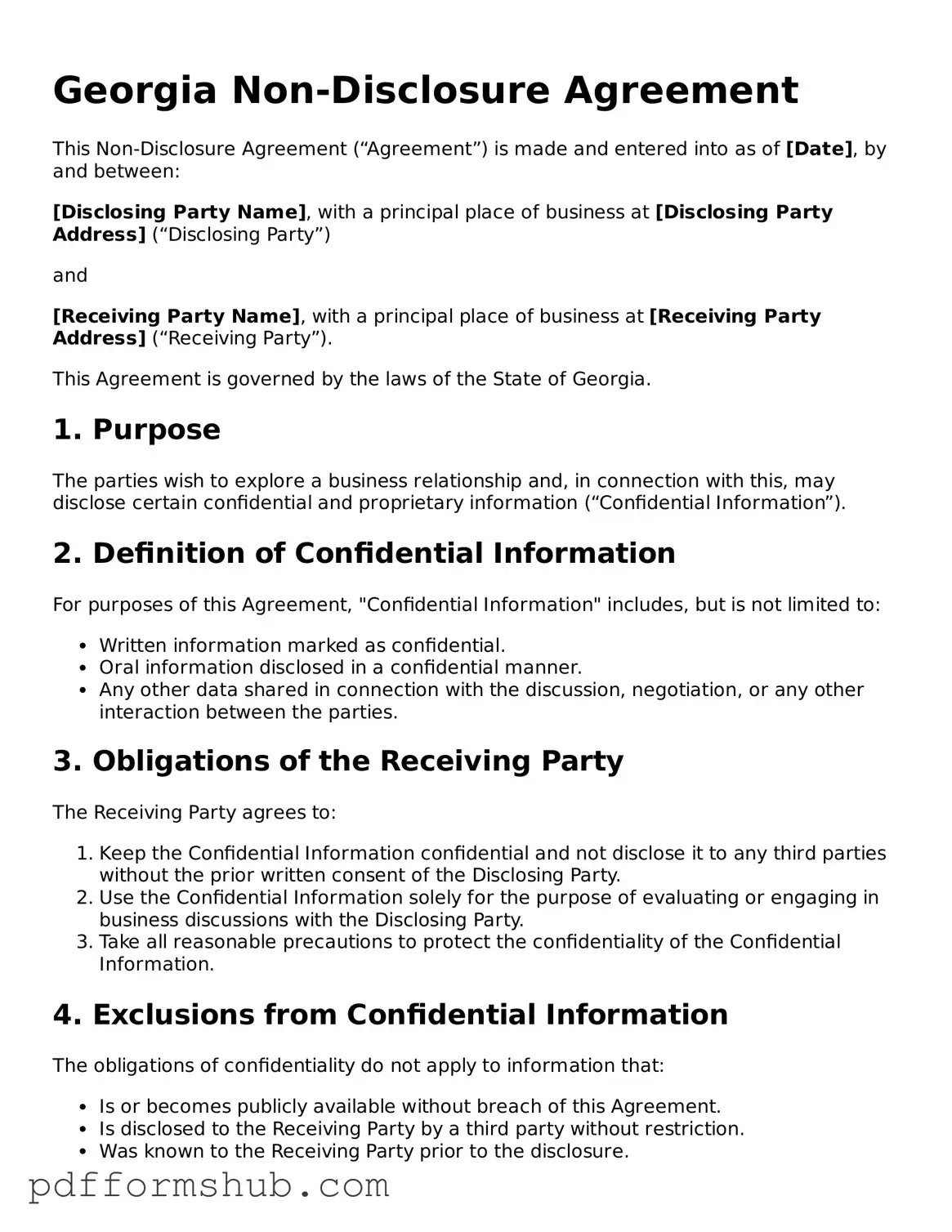-
What is a Non-disclosure Agreement (NDA) in Georgia?
A Non-disclosure Agreement (NDA) in Georgia is a legally binding contract designed to protect confidential information shared between parties. It ensures that sensitive information, such as trade secrets, business plans, or proprietary data, is not disclosed to unauthorized individuals or entities.
-
Who typically uses NDAs in Georgia?
NDAs are commonly used by businesses, entrepreneurs, and individuals who need to share confidential information. This includes situations such as hiring employees, collaborating with other businesses, or engaging in negotiations. Both parties involved in the agreement can be individuals or organizations.
-
What types of information can be protected by an NDA?
NDAs can protect various types of information, including but not limited to:
- Trade secrets
- Business strategies
- Financial data
- Customer lists
- Product designs
-
How long does the confidentiality obligation last?
The duration of the confidentiality obligation is typically specified in the NDA. While some agreements may impose a time limit, others might state that the obligation lasts indefinitely, particularly for trade secrets. It is crucial for parties to clearly outline this duration in the agreement.
-
What are the consequences of breaching an NDA?
Breaching an NDA can lead to serious legal consequences. The injured party may seek damages, which could include monetary compensation for losses incurred due to the breach. In some cases, injunctive relief may also be pursued, which would legally prevent the breaching party from further disclosing the confidential information.
-
Is it necessary to have a lawyer draft an NDA?
While it is not mandatory to have a lawyer draft an NDA, it is advisable. A legal professional can ensure that the agreement is comprehensive, enforceable, and tailored to the specific needs of the parties involved. This can help prevent potential disputes in the future.
-
Can an NDA be terminated?
Yes, an NDA can be terminated under certain conditions. The agreement should specify the circumstances under which it may be terminated. Common reasons for termination include mutual consent of the parties, the expiration of the agreement's term, or the disclosure of information becoming public knowledge through no fault of the receiving party.
-
Are NDAs enforceable in Georgia?
Yes, NDAs are generally enforceable in Georgia, provided they meet certain legal requirements. The agreement must be clear, specific, and reasonable in scope. Courts will typically uphold NDAs that protect legitimate business interests and do not impose undue restrictions on the parties involved.
-
What should I include in an NDA?
An effective NDA should include the following elements:
- Definition of confidential information
- Obligations of the receiving party
- Duration of confidentiality
- Permitted disclosures
- Consequences of breach
-
Can I use a template for an NDA?
Using a template for an NDA can be a practical starting point. However, it is essential to customize the template to reflect the specific needs of the parties involved. Generic templates may not address unique circumstances or legal requirements, which could lead to enforceability issues.

